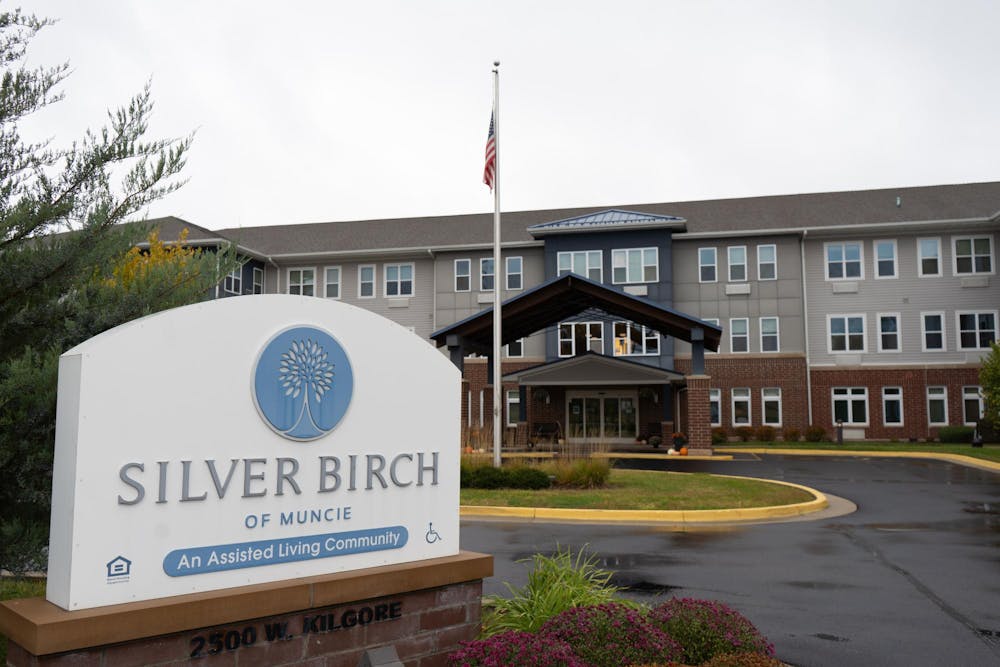It has been almost four years since the COVID-19 pandemic sent the world into a frenzy. Yet, some are still feeling the long-term effects of COVID-19, specifically older adults who require assisted living or specialized care.
People who need financial aid to live in assisted living homes typically apply for Medicaid and get approval. For people who rely on Medicaid to stay in assisted living, reapplying each year is the only way to continue their stay.
However, when the U.S. was in a declared state of emergency during the pandemic, people with Medicaid didn’t need to reapply. Now, four years post-pandemic, older Hoosiers must return to the traditional process of reapplying for Medicaid, according to Indiana Medicaid for Members.
Indiana Family and Social Services Administration (FSSA) made a budgeting error earlier this year, resulting in a $1 billion shortfall in funds for Medicaid, according to the Associated Press.
Due to the budget shortfall, the FSSA created a waiting list for people needing Medicaid to release funds slowly. However, many of those on Medicaid were unaware of the reapproval process and didn’t reapply. As of October, 13,598 Hoosiers were on the waitlist to get their Medicaid approved, according to the Indiana FSSA website.
Joe Collins, executive director of Silver Birch Living, an assisted living community for older people in Muncie, said the FSSA approves around 800 people on the waitlist per month. This means some people wait an entire year to get their Medicaid approved. Collins said his staff is working with Silver Birch residents who are struggling with this issue, but methods of improvisation won’t hold up long-term.
“We work with [the residents] as much as we can,” Collins said. “We’ll make these allowances for you until you can get your Medicaid waiver back. But, ultimately, if they can’t get it back in place, no waiver unfortunately [means] businesses can’t absorb.”
Collins said there has been a 48 percent reduction in resident admissions per month from April to August of this year. About 10 Silver Birch residents are expecting to lose their waivers in the next six months, and 50 residents have lost their waivers and cannot pay.
Under the current structure of the Medicaid waitlist, there will be people who go without much-needed care for months. Their options are either to wait or potentially go into debt and pay more than they would in assisted living by choosing to go to a nursing home. Collins said those who will wait have a higher fatality rate as they become more susceptible to injury.
“Many residents in Indiana do not have family, so they’re letting themselves deteriorate. And yes, they’ll pass — sad but true,” he said.
Collins also said multiple older adults are dealing with debilitating health issues that would be well cared for in a place like Silver Birch. However, these people cannot access assisted living services due to being stuck on the Medicaid waitlist.
Roni W. has been living at Silver Birch for five weeks and had her Medicaid approved earlier this year, but an unexpected illness forced her to go to the hospital. After her hospital visit, Roni was put right back on the Medicaid waitlist, where she had to go 60 days without another trip to the hospital. Roni’s family and the staff at Silver Birch helped her reapply for Medicaid.
“I’m 73, and here I am. Not in a million years did I ever think I would be in this position where I would have to apply for Medicaid [and] have that special kind of help,” Roni said.

Silver Birch resident Joyce H. has not had trouble receiving Medicaid this year but knows of many other residents who have. Joyce has been at Silver Birch for over a year and said the Silver Birch staff has been available to assist her 24/7.
“I know a couple of the residents have confided in me that because their waiver hasn’t come through; they have spent the money they had saved,” Joyce said. “Now, it’s causing them to have a little bit of debt, and they’re concerned about it.”
In September, Silver Birch celebrated Assisted Living Week, where residents and staff reflected on the facility’s history during each decade of its service.
During this time of reflection, staff members heard residents voice concerns about potentially losing their Medicaid coverage. Silver Birch asked residents if they were interested in having a protest to voice their concerns to the public. Many of the residents wanted to be involved.
To Collin’s surprise, the protest gained attention from the local and state governments.
“The mayor’s office came and did a photo shoot and posted on their Facebook page,” Collins said. “We actually had the senator for our local district and the state representative both reach out to us to talk to [residents and staff] about what our concerns [were]. It did open eyes, and that was the intent.”
Collins said he wanted to make it clear the protest’s objective was not to highlight how the Medicaid waitlist is impacting the profit of assisted living homes. Rather, he said the protest was to bring awareness to the Hoosiers who are vulnerable within the system.
The protest served as an opportunity for older adults at Silver Birch to have their voices heard.
Amber Greene, communications director for the city of Muncie, is the granddaughter of one of the residents at Silver Birch and took photos of the protest.
“My situation is unique because I work for the city, and I also have family that lives [at Silver Birch],” Greene said. “But if those two things were not part of my life, I don’t know that I would know about [the magnitude of the issue].”
While local officials did take the time to listen and understand protestors’ concerns, the local government is powerless in this situation since Medicaid is a federally run program.
Collins and Greene agreed that a surefire way to ignite change is to reach out to state representatives about the issue.
“Call your state representatives, speak with the FSSA and express why it needs to be taken care of,” Greene said. “These are the people in their golden years … We should be trying to take care of them in the ways that we can.”
Roni said she feels for those who are still on the Medicaid waitlist. She talked about how Silver Birch improved her quality of life in many ways.
“I’m just so sad for [the people on the waitlist] because they could be enjoying their life,” Roni said. “We have all kinds of activities that we do and movies that we watch and things that we mingle with that makes [life] enjoyable. I feel so bad that they have to wait and be processed in a not-so-nice way.”
Contact Maya Kim via email at mayabethkim@bsu.edu, or on X, @MayaKim03.





